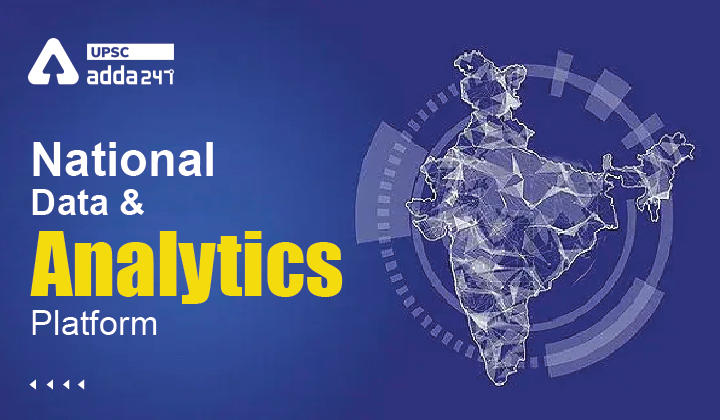Table of Contents
National Data and Analytics Platform UPSC: Relevance
- GS 3: Awareness in the fields of IT, Space, Computers, robotics, Nano-technology, bio-technology and issues relating to intellectual property rights
National Data and Analytics Platform: Context
- Recently, NITI Aayog has launched the National Data & Analytics Platform (NDAP) to make available public government on a user-friendly platform.
National Data and Analytics Platform: Key points
- The platform aims to democratize access to public government data by making data accessible, interoperable, interactive, and available on a user-friendly platform.
- It hosts foundational datasets from various government agencies, presents them coherently, and provides tools for analytics and visualization.
What is NDAP?
- NDAP meaning: The National Data and Analytics Platform (or NDAP) is NITI Aayog’s flagship initiative to improve access and use of government data.
- NDAP is a user-friendly web platform that aggregates and hosts datasets from across India’s vast statistical infrastructure.
- NDAP follows a use-case based approach to ensure that the datasets hosted on the platform are tailored to the needs of data users from government, academia, journalism, civil society, and the private sector.
- All datasets are standardized to a common schema, which makes it easy to merge datasets and do cross-sectoral analysis.
- NDAP is a critical milestone, which aims to aid India’s progress by promoting data-driven disclosure, decision making and ensuring availability of data connecting till the last mile, is an example to how the power of data can be leveraged.
- India has a rich data ecosystem which generates data that is invaluable for decision making and research. NDAP is adding to these efforts to further strengthen the data ecosystem. NDAP is adding to these efforts to further strengthen the data ecosystem.
NDAP: Quality of data
- Datasets on the platform are required to meet a minimum data quality standard that is defined using NDAP’s in-house 5-star rating framework.
- Applying this minimum standard ensures that all datasets on NDAP are accompanied by detailed documentation, have been mapped to a common data schema, and have passed internal data quality checks to ensure that they remain true to the source.
NDAP: User-centricity
- NDAP centres the user experience in data delivery by hosting use-case relevant datasets, ensuring that the platform experience is user friendly, and regularly soliciting and incorporating user feedback.
- NDAP’s dataset identification process incorporates use-case-based inputs from sector experts in academia, policy, journalism, etc. This process ensures that the datasets available on NDAP are relevant to the needs of real-life data users.
- NITI Aayog has developed NDAP keeping user feedback at the forefront, and hopes to continue integrating input from users.
Read current affairs for UPSC





 TSPSC Group 1 Question Paper 2024, Downl...
TSPSC Group 1 Question Paper 2024, Downl...
 TSPSC Group 1 Answer key 2024 Out, Downl...
TSPSC Group 1 Answer key 2024 Out, Downl...
 UPSC Prelims 2024 Question Paper, Downlo...
UPSC Prelims 2024 Question Paper, Downlo...




